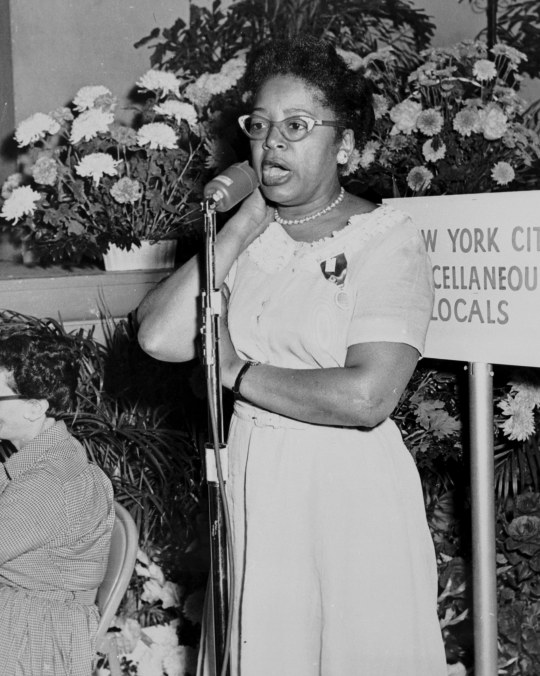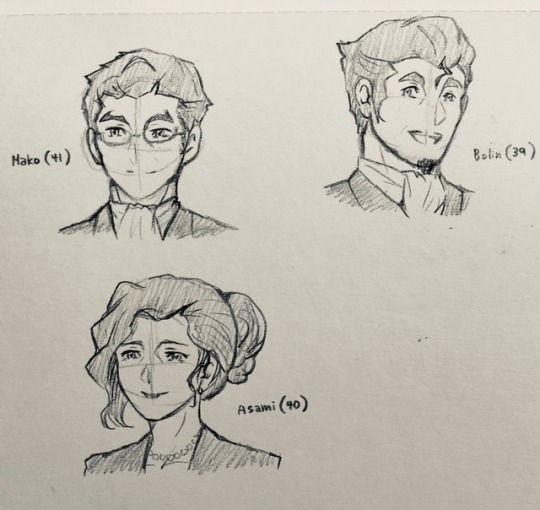#chairladies
Text
Cyber cat Mina Rocket rides, squirts and shows her fluids
Busty lesbian latina licks out pussy
Sexy Redhead Teen with Glasses and Tight Young Girl Pussy
Big ass ebony goddess riding small cock/dildo reverse cowgirl in chair
Giselle monte
September Sexy Dick Between Tit Cumshot
BBW Getting Fucked By Obese Coworker Crush
Macho gozando dentro day Mylla casada de mamaus
Pamela Sanchez and Minerva (BDSM) enjoy bondage Bondage (BDSM), use of restraint for erotic stimulation
My girlfriend fucking outdoor with his teacher
#Manuela#megmho#undisqualified#unscholastically#meteora#bragger#unpending#uniplex#beauti#brachy-#prairielike#expunging#chairladies#HWD#Waymart#cole-slaw#speakless#reduplicatively#lion-tawny#Chain
0 notes
Text

modern AU: CEO and CFO of the Whitestone Company
(With Cassandra being the chairlady and Yennen her assistant, who are both currently not in the frame :D)
1K notes
·
View notes
Text
Labor Organizer Spotlight, Mabel Fuller! ⭐
This week's #LaborOrganizerSpotlight is Mabel Durham Fuller!
Mabel Durham Fuller was born on April 1, 1905 in Kingston, New York, where she attended the local public schools of Kingston and Yonkers. She was an operator in an undergarment factory before the shop was unionized, and after it was organized, Fuller became the shop chairlady. She was a member of the Undergarment and Negligee Workers Union, Local 62 and elected to the Executive Board in 1937. As a member of the Board, Fuller served on the Finance Committee and Sick Benefit Committee. She was also elected as a delegate to attend several ILGWU National Conventions. Fuller attended the Hudson Shore Labor School, as well as the U.S. Army Administration school from 1944-1945, and was the first woman to attend the Harvard Trade Union Institute where she was a fellow from 1945-1946. Fuller became the first African American staff member of the Education Department in 1946. In the Education Department, Fuller helped to plan and direct programs that aimed at improving the image of the union not only to the members, but also to the public.
Fuller was an American National Red Cross instructor, chair of the Women's Service Brigade during World War II, delegate to the Negro Labor Committee, member of the Committee for Civil Rights, the Urban League, the NAACP, and the Liberal Party.
More about Mabel Durham Fuller can be found in Coll. 6036/034.

Mabel Fuller, assistant educational director of ILGWU Local 62, giving a speech.
#ILGWU #InternationalLadiesGarmentWorkersUnion #NAACP #MabelFuller #Harvard #LaborOrganizer #UnionStrong #Unions #May #Cornell #LaborArchives #LaborHistory #ArchivesOfInstagram #AllLaborHasDignity #KheelCenter #ILRSchool #LaborRights #Strikes #LaborOrganizerSpotlight @CornellILR @CornellTextileIndustry @CornellFashionCollection
2 notes
·
View notes
Photo

In advance to my beautiful formal chairlady of Voice Of Youth Organization (voyo). Code 18/12 https://www.instagram.com/p/Cl2KcPHDl_j/?igshid=NGJjMDIxMWI=
1 note
·
View note
Text
[ad_1]
A mammoth crowd of Peoples Democratic Party, PDP supporters Tuesday, November 29th, 2022 thronged the JS Tarka Stadium, Gboko to witness the flag-off of the Benue North-West Senatorial district campaigns for 2023 elections, Njenje Media News reports.
Benue State Governor, Samuel Ortom who is the PDP Senatorial candidate for the Senatorial seat while addressing the teeming party faithful at the campaign rally said the party remains committed to winning all its elections in the state.
He particularly appreciated the support of the people and charged them to continue to support the party.
In his words: “I appreciate you for your commitment to the cause of Benue State. You have been good to me, you have never disappointed me and this time around, you have demonstrated that. Your outing today has really overwhelmed me and I am grateful.
“I want to assure you that we remain committed. Benue State is PDP, and PDP is Benue State. By the grace of God, we are going to win our elections,” he stated.
The Governor urged the people to vote for Titus Uba as his successor, emphasizing that “by the grace of God, I want to assure you that Titus Uba will take over from me as the Governor of Benue State come 2023. Don’t be carried away by rumours and what people say.”
Governor Ortom maintained that despite the challenges of the party at the national level “I want to assure you that PDP is committed, that is why you have seen us working together. I want to assure you that PDP is strong, firm and committed to win Benue State. Don’t be deterred. We shall continue to do our best.”
The Senator representing Benue North-East Senatorial district, Dr Gabriel Suswam in his remarks stated that Ortom had the leadership courage and political will to effectively represent and protect the interest of the state if elected to the Senate and charged the people to vote him overwhelmingly.
Senator Suswam particularly noted that Benue State was marginalized in the national political equation and men of uncommon courage like Ortom were needed in the Senate to collaborate with his colleagues to make a case for the state.
He charged young people to stand firm to protect the future of the state, urging party stalwarts to return to their polling units and mobilize support for the party.
On his part, Senator representing Benue North-West Senatorial district, Barrister Orker Jev said he was prepared to hand over the Zone B senate seat to Ortom whom he noted was poised to represent and protect the interest of his people, stating that there were many good reasons why Ortom deserved to be elected to the Senate.
Also speaking, Senator representing Benue South, Comrade Abba Moro said the PDP was on rescue mission following the misrule of the APC-led government, emphasising that the party in the state will key into the leadership of Governor Ortom to ensure all candidates win in next year’s polls.
Governorship candidate of PDP in Benue State, Titus Uba who spoke through the Deputy Governorship candidate, Sir John Ngbede, pledged to sustain the security initiatives as well as achievements in infrastructure, education and health put in place by the Ortom administration.
Wife of the Governor, Dr Eunice Ortom in her brief remarks, expressed appreciation to Benue people for the support given to the administration of Governor Ortom and their commitment to elect him to the Senate.
Earlier, Chairman of the occasion, Senator Fred Orti and Chairlady of the occasion, Mrs Justina Sorkaa in separate remarks lauded the performance of Governor Ortom, particularly for running an inclusive government and urged the people to vote for him.
In separate remarks, the Director of the Benue North-West Senatorial campaign, Hon Mike Mku said the PDP was poised to winning the polls, urging the people to vote Ortom for Senate as he had the qualities for the task, while the guest speaker, Dr Cletus Tyokyaa said Ortom was favoured by zoning and track record of performance.
The Acting
State Chairman of the Party, Hon Isaac Mffo presented PDP flags to all candidates of the party in Benue North-West Senatorial district.
[ad_2]
0 notes
Note
ADELE!!! OMG HIIII 👋🏾👋🏾I FINALLY (re)made a Tumblr coz Apartheid Clyde is burning the bird app down with his own two hands RIP.
Anywat, FIRST OF ALL as the chairlady of THEE Odyssey club we still here LOL. Secondly I finally got started on that Prof Sukuna fic and it's already chaos and thisrt in chapter one HYSHBDIDUSH. Gotta keep to the brand. 😌
YES OMG !!!! SO EXCITING TO SEE U ON A LIL BLOG NAT
bro prof sukuna......im literally frothing at the mouth im so excited u don't even know every day i wait patiently to have my world utterly rocked
1 note
·
View note
Text
PF Chairlady In Mwense Advises PF Against Using Chishimba Kambwili's Tribal Formula Which Is Divisive And Never Wins Elections
PF CHAIRLADY IN MWENSE ADVISES PF AGAINST USING CHISHIMBA KAMBWILI’S TRIBAL FORMULA WHICH IS DIVISIVE AND NEVER WINS ELECTIONS ANYWAY
“With love, I followed the campaigns for both President HH and Honourable Chishimba Kambwili on their Facebook pages as they did their live streaming. To be honest, you cannot win an election with the message Honourable Kabwili was advancing,” says Cynthia Chanda,…

View On WordPress
0 notes
Text
Fredrick Mwanzia Makindi Laid to Rest in emotive Send off
Fredrick Mwanzia Makindi Laid to Rest in emotive Send off
By TCD TEAM.
Mr Frederic Mwanzia Makindi, the husband to kitui public service board chairlady Dr Frolence Munanie Makindi was today laid to rest in emotive yet colourful send off ceremony.
The late Fredrick Makindi was a distinguished educationist whose contributions in the society can not be overlooked, the TCD Report.
He was laid to rest at his home Kavisi Village, Kyanika location, Mulango,…

View On WordPress
0 notes
Text
MP Heyliger Marten seeks update on legal position of justice workers
MP Heyliger Marten seeks update on legal position of justice workers
Chairlady of Justice Committee Member of Parliament (MP) Grisha Heyliger Marten, has sent a letter to the Minister of Justice Ana Richardson with respect to a motion dated June 30, 2021, related to the “rechtspositie” or legal status of justice workers.
Richard Gibson Collected 7.8 Million From Ennia Bribe Allegations St…

View On WordPress
0 notes
Photo

Always happy to meet the #sistercities committee 🇺🇲🇲🇫🇪🇺 and its #amazing #chairlady #jacksonville #seattle #nantes 🧭✈️⛵ (à Maison des Etats-Unis - ANSJ) https://www.instagram.com/p/CTmyPcCN1le/?utm_medium=tumblr
0 notes
Photo

#deervalley #endofseason #chair #chairlady #endofskiseason #steineriksenlodge (at Stein Eriksen Lodge Deer Valley)
1 note
·
View note
Text
Service 📚
Thursday, March 25th 2021
Today we had the debate. The motion of the debate was “THBT governments should limit the number of children people can have in order to stop the climate change”. It overall went good, everybody was prepared and it was really nice, tho we had minor communication issues. Everyone is getting better and better at it and I am proud of them. I was the chairlady again and I like this role very much.
2 notes
·
View notes
Video
Heart of kindness foundation is an NGO that is registerd home & Abroad with our international headquarter in Dublin under our amiable chairlady Mrs Gold Oluranti Dada #dublin #ireland #ireland🍀 #ireland🇮🇪 #ireland_gram #nigeria #uk #usa🇺🇸 #newyork #newyorkcity #lagosnigeria #islandlife #lagosisland #ikeja #ekitistate #ondostate #oyostate #lagosstate #ogunstate #asiameme #asiamodel #chinesemodel #african #africastyle #heart #kindness #kindnessmatters #kindnessquotes #kindnessrocks #kindnessiscontagious https://www.instagram.com/p/COYGbYInoug/?igshid=1tcf32ny7bes1
#dublin#ireland#ireland🍀#ireland🇮🇪#ireland_gram#nigeria#uk#usa🇺🇸#newyork#newyorkcity#lagosnigeria#islandlife#lagosisland#ikeja#ekitistate#ondostate#oyostate#lagosstate#ogunstate#asiameme#asiamodel#chinesemodel#african#africastyle#heart#kindness#kindnessmatters#kindnessquotes#kindnessrocks#kindnessiscontagious
1 note
·
View note
Text
The True Story of Min Matheson, the Labor Leader Who Fought the Mob at the Polls
https://sciencespies.com/history/the-true-story-of-min-matheson-the-labor-leader-who-fought-the-mob-at-the-polls/
The True Story of Min Matheson, the Labor Leader Who Fought the Mob at the Polls

Labor leader Min Lurye Matheson made her name facing down the mob. She arrived in northeastern Pennsylvania in 1944, dispatched by the International Ladies Garment Workers Union, or ILGWU, to organize the hard-pressed garment workers of the Wyoming Valley anthracite coal region. Here, in towns with deep mob roots such as Pittston, she soon observed first-hand “the system,” an election day practice in which women signed the polling roster but had their husbands cast their votes—all under the watchful eye of authorities controlled by Russell Bufalino, the gangster depicted in Martin Scorsese’s 2019 film The Irishman.
The “system” had long gone unchallenged, but Matheson saw it as the underlying barrier to her fight to secure worker rights. To confront the corruption, she selected a polling site at the heart of Bufalino’s territory, sending a Pittston woman named Carmella Salatino to the polls on election day. Salatino refused to sign the election roster unless she could cast her own vote privately, with her husband standing by in support outside the booth. With Matheson’s encouragement, the Salatinos stood their ground for hours against the pressure of Bufalino’s “poll-watchers.” They ultimately backed down, but they had made a crucial first step toward change, and it would not be long before Matheson and the women workers of Pittston overcame voter suppression in the town. Later, through efforts like 1958’s Dress Strike, ILGWU members asserted the union’s control over Pennsylvania’s garment industry, and mob-controlled businesses diminished in power.
Matheson’s career with the ILGWU extended from the 1940s to the 1960s, and she frequently combated organized crime interests in the region’s notoriously corrupt towns, alternately fighting against and negotiating with gangsters. Matheson learned the dangers of fighting the mob through personal experience; one of her brothers, Will Lurye, was murdered while trying to organize a mobbed-up firm in New York’s Garment District. Yet she was an idealist, and while she has become best known for facing off against the mob, Matheson’s primary importance to the labor movement lies in the inspiration she gave to workers she led, and the way she changed attitudes among working-class women of Pittston like Carmella Salatino—turning them into a powerful political force in the region and a respected civic presence. Her gutsy leadership style and unwavering fight for the ideals of organized labor brought a transformative vision of union power to an unlikely corner of America where tradition held sway, and women seldom got a voice.

Matheson, second from left, with family, at the district attorney’s office after the investigation of her brother Will Lurye’s murder by the mob. Matheson faced off against gangsters throughout her long career as a union organizer.
(Courtesy of the Queens Public Library Archives)
In the early 20th century, Northeast Pennsylvania was a region of small, often isolated townships that had been populated by waves of immigrants who had come to work in the coal mines. For decades the mines had thrived, but by the mid-1940s the coal industry was flagging, leaving families mired in long-term unemployment. Non-union garment factories emerged as an economic lifeline for a desperate workforce of miners’ wives and daughters, who worked long hours under poor conditions, with no recourse and no representation. The workers’ poverty created rich opportunities for garment contractors from New York, some with familial mob ties, who flocked to Pennsylvania for competitive advantage where they could undercut the industry’s wage rates and evade union oversight. This environment, plus very low overhead for entry, presented an opening for mobsters to extend their operations beyond New York and to secure a legitimate front for other illegal activities. The ILGWU sought to stabilize this volatile industry through the enforcement of uniform compensation and working conditions, and it sent Matheson to organize these “runaway” shops.
Matheson was a born organizer who knew she needed to earn trust to organize garment workers, and that she would need to demonstrate the value of the union to their lives, and not just their livelihoods. To unionize would require courage and defiance from many of these women; attitudes in Northeast Pennsylvania were provincial and patriarchal. “The men had no jobs,” said Dorothy Ney, who worked with Matheson as an organizer. “They were out hanging around Main Street while the women worked.” But though the women were the breadwinners, they were still seen primarily as the caretakers of their households, and their male family members were not always tolerant of their union involvement. Union women who followed Matheson’s lead were subject to demeaning and vulgar verbal attacks, as well as physical threat. In the early days of Matheson’s tenure, husbands and fathers often yanked women right out of the picket lines, and hauled them back home. Organizing these workers required upending long-term patterns of subjugation that reached into the civic, economic, and familial aspects of a woman’s life.
These women’s political realities bore little resemblance to the ideals of American democracy that Matheson upheld, and showed why targeting voting abuses became one of her first efforts. For Matheson, one’s right to vote was an underlying principle of social democratic unionism—an ideal that emphasized workers’ political and economic rights. Whether recruiting workers to the union cause or dressing down a made member of the mob challenging her at the picket-line, she often delivered what she called “her little lecture on democracy.” In it, she held that the electoral process was an essential precursor to establishing democracy in all aspects of a working person’s life. “Having the right to vote doesn’t make it democratic,” she insisted, telling women they also had to exercise that right, and to push for justice at work. “If you don’t have a labor union or you don’t have an organization to represent you on the job, you’re really being denied your rights, your democratic rights.”
The Pittston voting gambit was a crucial first step that put the community and the local mob leadership on notice, and demonstrated Matheson’s fearlessness and solidarity with the rank-and-file. An outsider from Chicago, Matheson grew up in a fiercely progressive household with a union activist father who had his own violent encounters with thugs and racketeers. All seven Lurye children attended Socialist Sunday School, and young Min often joined her father at union rallies. Her parents frequently sheltered radicals in their home, including Emma Goldman. Matheson’s mother became adept at deflecting police searches during the inevitable raids on their home. “Dad wouldn’t work at anything, I don’t care what it was, without getting others who were also doing the same thing together,” Matheson later recalled.
It was an active, politically engaged climate, and Matheson developed a deep commitment to social justice during her youth. She became a zealous member of the Young Workers’ Communist League, where she met her life partner Bill Matheson—though the Mathesons both broke with the Communist Party when they saw Soviet interests superceding the interests of the American workers they organized. That, and her brother’s murder, distilled her shrewd assessment of ideologues and authority, and galvanized her personal sense of justice.
Matheson’s direct experience with personal loss in the fight for labor was highly relatable to the women of the coal region. Oral histories from the women who organized with Min show that they felt her deep commitment to their cause, and they treasured their hard-won status. Many recalled their time in the union as life-changing, and imbued with purpose. They never wanted to go back to the days of “no representation, no protections,” and they often spoke of Matheson’s courage and loyalty. “If we didn’t have somebody like Min Matheson with us, I believe we would have given up because she was so strong and she was down there with us,” Minnie Caputo, who joined Matheson’s organizing team and helped fight the mob in Pittston, told an interviewer. “We knew when we were in a shop how she fought for every girl and you weren’t gonna give all that up. It would be foolish for us after she fought so hard.”
And they refused to go backward. The ILGWU’s Northeast District grew from 404 members in 1944 to 11,000 by the late 1950s, with more than 250 union factories. As representatives of their shops, a growing number of elected chairladies and secretaries flocked to the union’s monthly meetings. “They loved to hear Min talk,” Ney said. “Whatever she believed in, they believed in.” And Matheson’s ILGWU, with Bill Matheson as director of education, cultivated active political and civic engagement. Union members took on leadership roles on the shop floor, joined school boards, and participated in local Democratic Party politics. In 1957, Pittston’s mayor instituted a “Garment Workers’ Day” to recognize their contributions to the community.
Matheson’s leadership transformed oppressed garment workers into constructive members of society, with status and dignity. The ILGWU Northeast District’s educational and recreational programs supported local charity drives and created a union newsletter and a radio program, which—typically written by Bill—were notable for their candor, humor, and accessibility. Matheson launched a mobile healthcare unit that traveled throughout the region to serve the needs of the union’s more remote members—the first of its kind. And, to enhance the public perception of the union and provide a creative outlet for members, the Mathesons formed a highly popular chorus, which performed to audiences in venues throughout the area. These activities were guided by principles of community engagement and empowerment—Matheson understood that her members would gain good standing in the community by becoming a visible and vocal presence invested in contributing to the common good.
After Matheson’s retirement, she lived on a meager union pension and sought to rejoin the ILGWU to organize part-time, hoping to help train a new generation of union activists. The ILGWU did not accept the idea, however, and Matheson died in 1992. Now, in 2020, only about 8 percent of the private sector workforce in the U.S. is represented by organized labor and the vast majority of workers lack the union-won protections Matheson championed. Matheson observed this diminishment in the ILGWU as early as 1988. “I feel that a union has to be constantly on its toes and force conditions to see that the employers live up to their agreement, and the girls have pride in their organization. Otherwise the whole concept of unionism just withers and dies, and I wouldn’t want to see that,” she reflected in a 1983 interview.
The impact of the long neglect and decline of union power is seen today in the challenges faced by workers, and front-line workers in particular, during the Covid-19 crisis. Decades of complacency toward worker protections are on full view, suggesting that Min Matheson’s empowering message has resonance in the fight to reclaim the rights she and her members fought so hard to achieve.
Catherine Rios is an associate professor of humanities and communications at Penn State Harrisburg. David Witwer is a professor of history and American studies at Penn State Harrisburg. They are the coauthors of Murder in the Garment District: The Grip of Organized Crime and the Decline of Labor in the United States. Learn more at their website.
#History
1 note
·
View note
Text
Two Thirds Gender Rule: A long term solution


Nakuru County Senator Susan Kihika Chairlady at World Parliamentarians Union
We are facing an enormous constitutional crisis as a country as two thirds gender rule has failed to be implemented ten years down the line. There are 172 elected women out of 1,883 people who holds elective political offices. This is quite far from making a third or two thirds as enshrined in the constitution. The rule…
View On WordPress
1 note
·
View note
Text




Was going through some of my old sketchbooks, and I found this!
After watching all of Legend of Korra, I was curious as to what everyone would look like 20 years older; as you can tell, I had A LOT of fun 😊
I can imagine Mako still working as a cop (maybe became the chief?🤪), Bolin working as the city’s top detective, and Asami as the chairlady of Future Industries worldwide!
43 notes
·
View notes